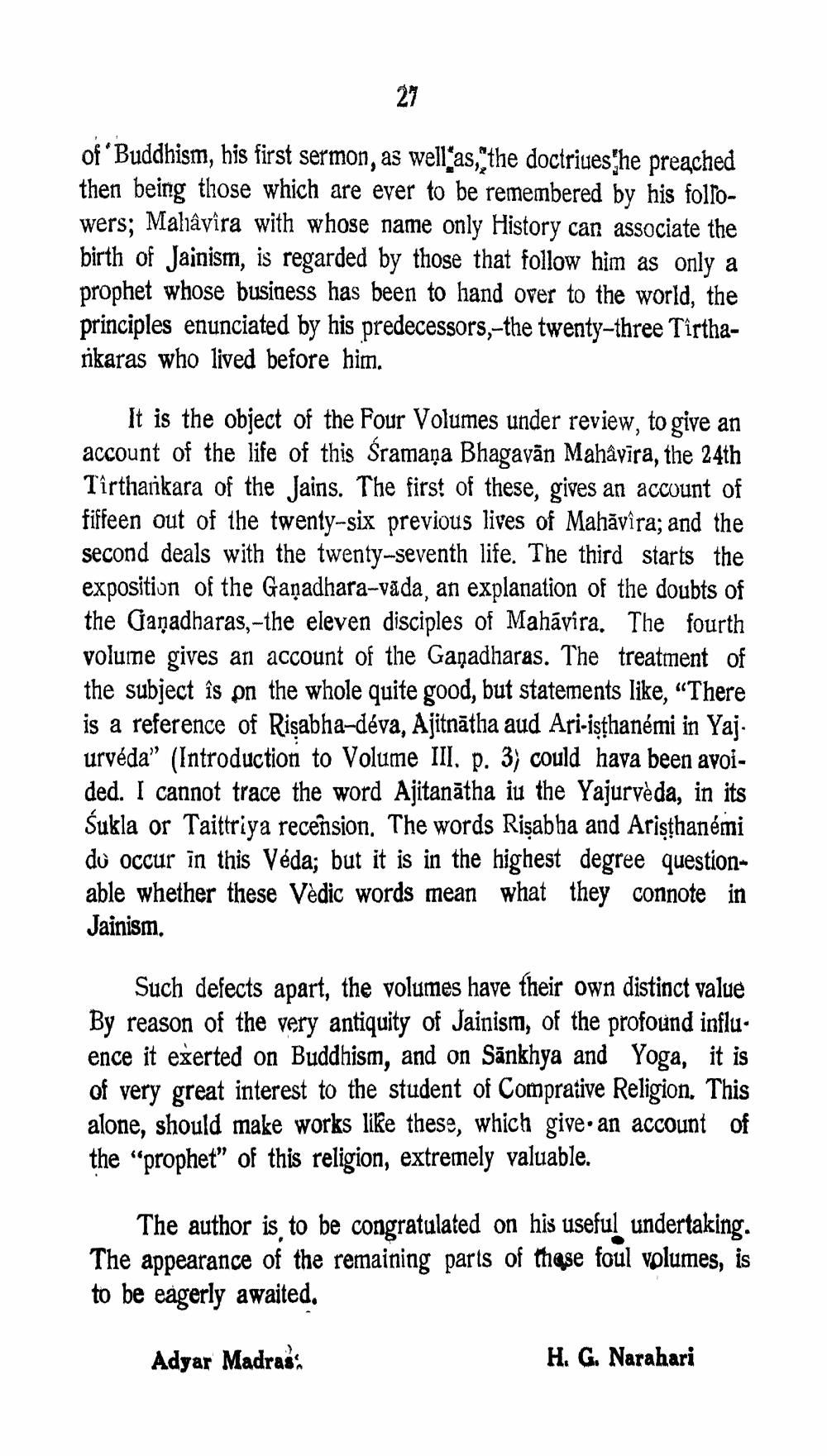________________
of 'Buddhism, his first sermon, as well as, the doctriues he preached then being those which are ever to be remembered by his followers; Malâvira with whose name only History can associate the birth of Jainism, is regarded by those that follow him as only a prophet whose business has been to hand over to the world, the principles enunciated by his predecessors,-the twenty-three Tirtharikaras who lived before him.
It is the object of the Four Volumes under review, to give an account of the life of this Śramaņa Bhagavān Mahavira, the 24th Tîrtharikara of the Jains. The first of these, gives an account of fiffeen out of the twenty-six previous lives of Mahăvîra; and the second deals with the twenty-seventh life. The third starts the exposition of the Gañadhara-váda, an explanation of the doubts of the Ganadharas,-the eleven disciples of Mahavira. The fourth volume gives an account of the Ganadharas. The treatment of the subject is on the whole quite good, but statements like, “There is a reference of Risabha-déva, Ajitnātha aud Ari-isthanémi in Yaj. urvéda" (Introduction to Volume III. p. 3) could hava been avoided. I cannot trace the word Ajitanātha iu the Yajurveda, in its Sukla or Taittriya recension. The words Risabha and Aristhanémi dù occur in this Véda; but it is in the highest degree questionable whether these Vedic words mean what they connote in Jainism.
Such defects apart, the volumes have their own distinct value By reason of the very antiquity of Jainism, of the profound influ. ence it exerted on Buddhism, and on Sānkhya and Yoga, it is of very great interest to the student of Comprative Religion. This alone, should make works like these, which give an account of the "prophet" of this religion, extremely valuable.
The author is to be congratulated on his useful undertaking. The appearance of the remaining parts of these foul volumes, is to be eagerly awaited.
Adyar Madrass
H. G. Narahari




